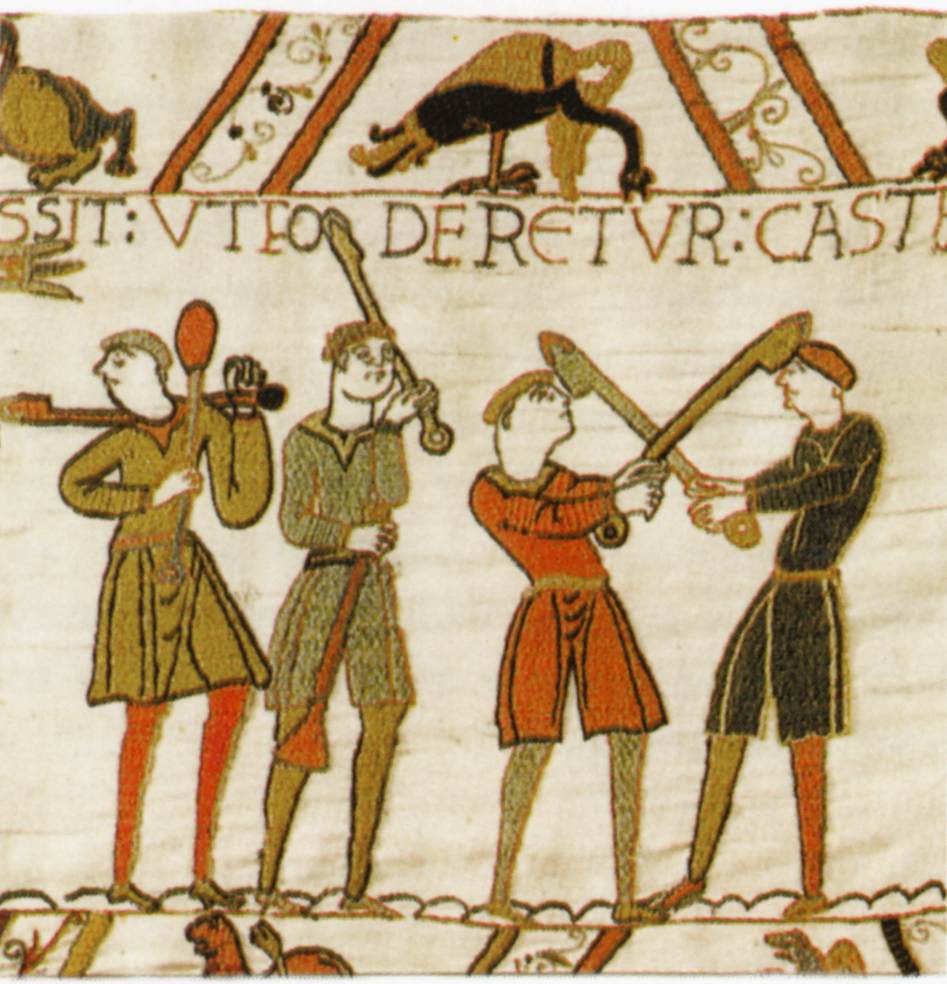
Detail from The Bayeux Tapestry (circa 1080).
Here’s another one of those funky words with opposite meanings depending on the context and a great word for fans of fantasy literature. Cleave can mean to adhere to something or to split something, as in skulls. Consider these examples:
The dwarves cleaved to their king as the goblin horde closed from all sides.
The dwarf cleaved the goblin’s helm with a mighty swing of his ax.
Words such as cleave are so common in English that there is a special name for them. Called auto-antonyms or contronyms, these words share a spelling with a word that has the opposite meaning. Contronyms must give new English speakers fits.
Cleave—meaning to adhere—comes from Middle English clevien, which derives from Old English clifian, which is akin to Old Saxon klibon, Old High German kliban, and Dutch kleven, all meaning to stick or cling.
Cleave—meaning to split—comes from Middle English cleven, which derives from Old English clēofan, which is akin to Old Saxon klioban, Old Norse kljūfa, Dutch kloven, and Old High German klioban, all meaning to split.
The two words have always been very similar, even across their ancestor languages, only a slight variation in spelling. It’s easy to imagine how usage wore away the differences and left us with a confusing but interesting mess.


I had no idea it had two meanings. Cleave sounds like such a mighty word too!